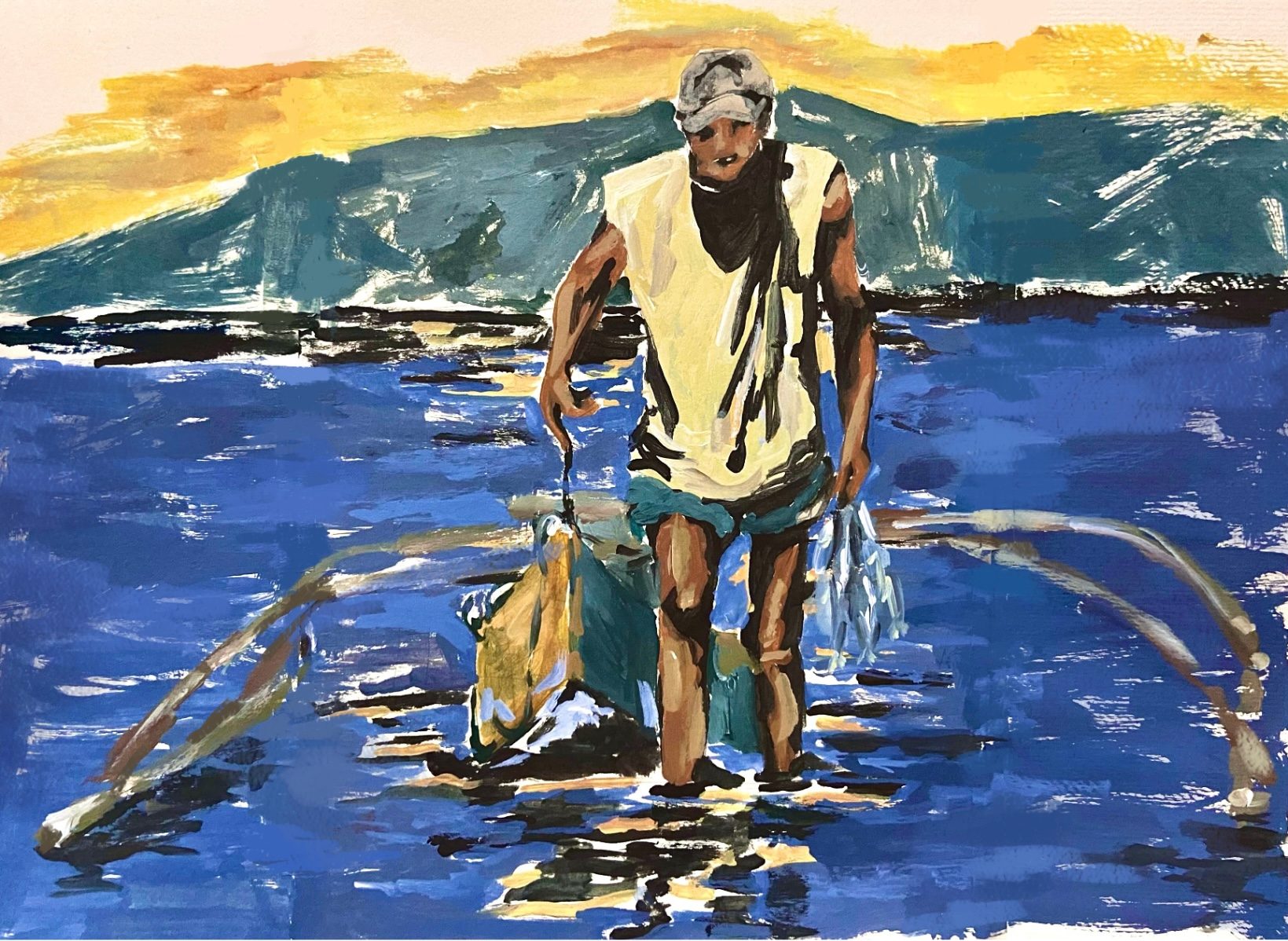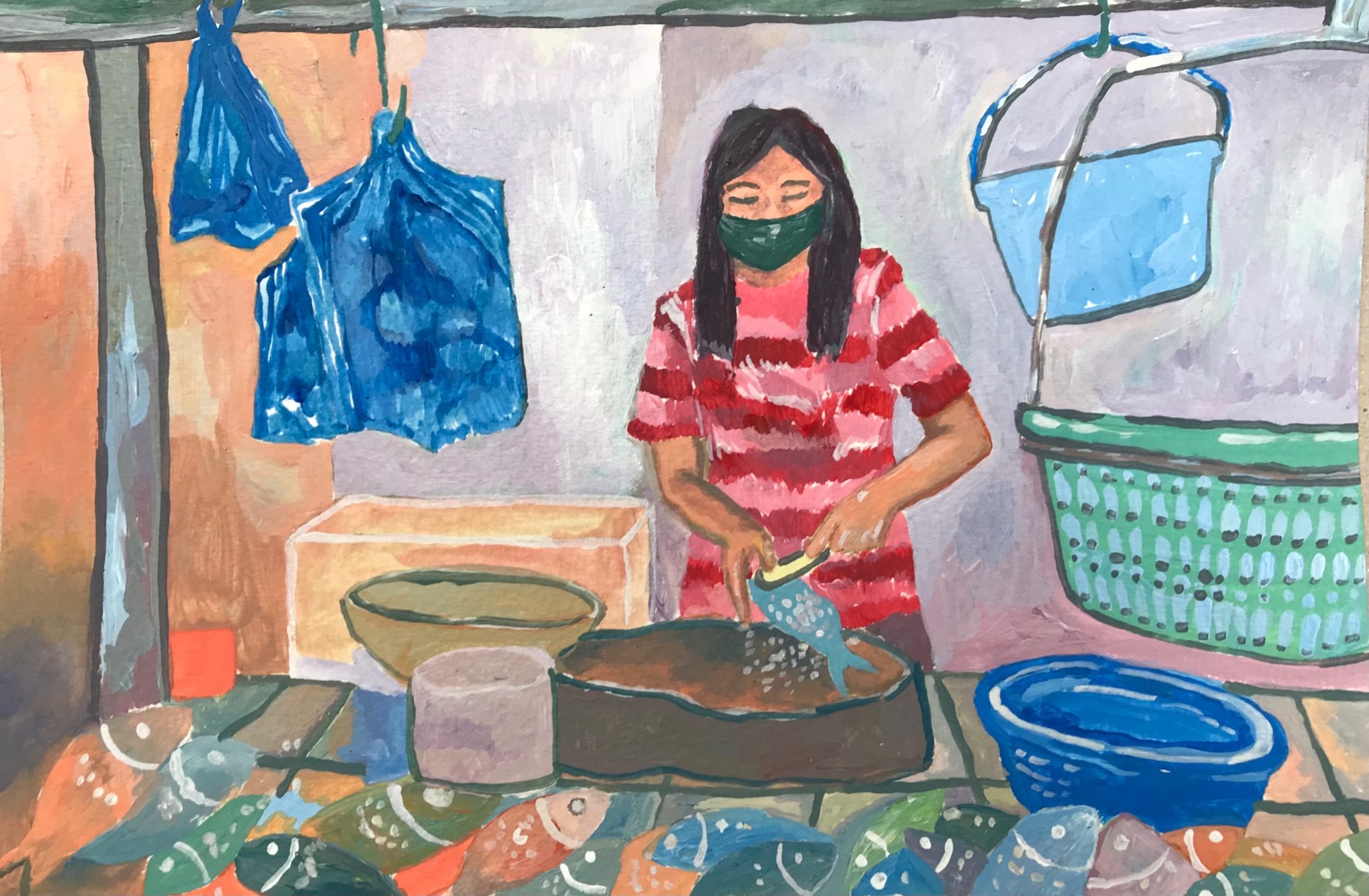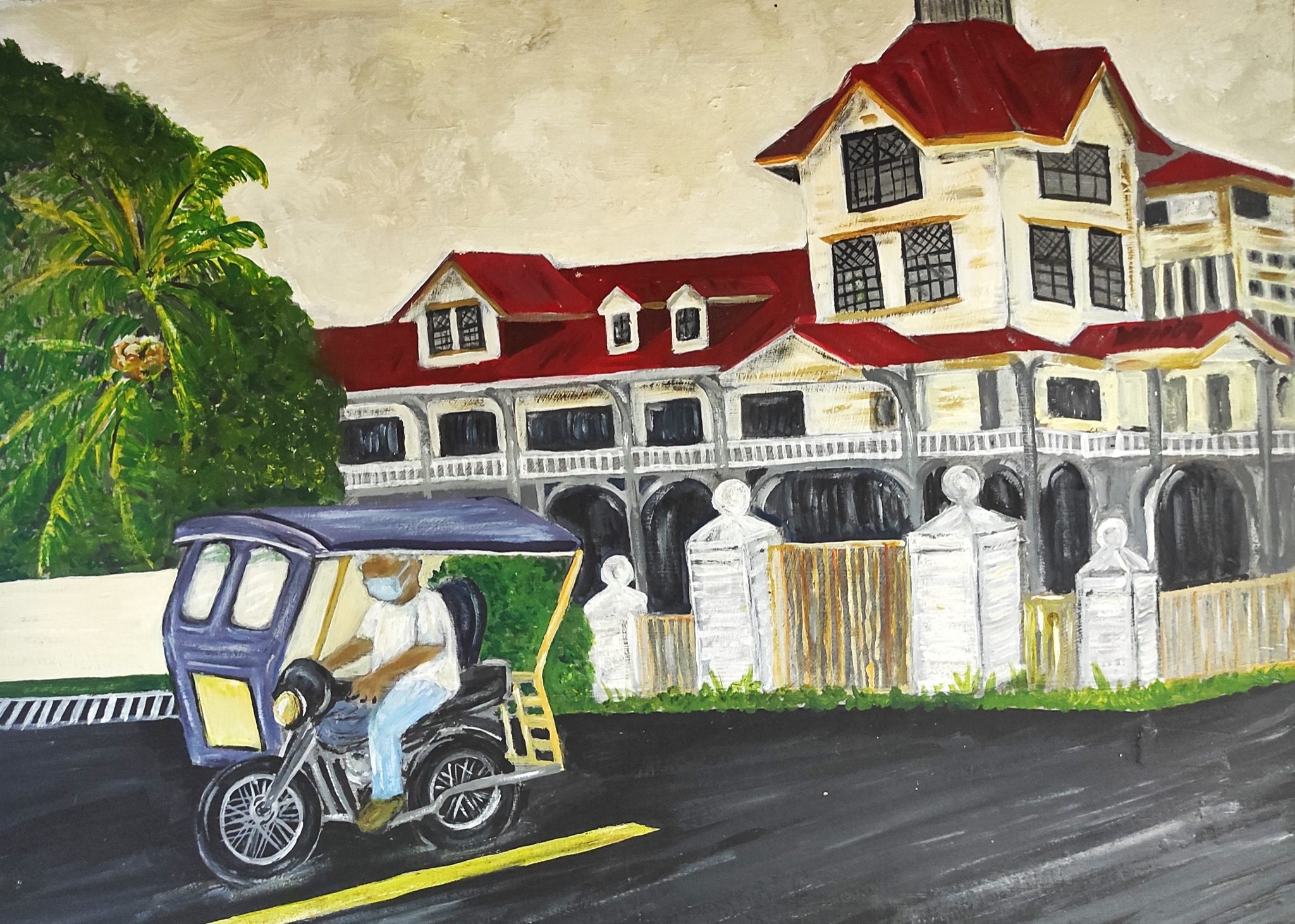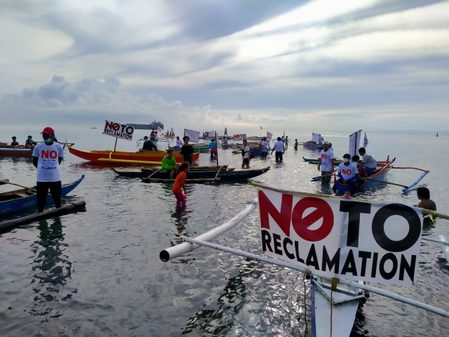SUMMARY
This is AI generated summarization, which may have errors. For context, always refer to the full article.

NEGROS ORIENTAL, Philippines – Rappler went around the streets and seas of Dumaguete City to ask common folks about their thoughts on the controversial 174-hectare Smart City reclamation project being proposed by the local government.
The joint venture between the local government and a private firm was supposed to be signed in July 2021, but due to protests, the city council retracted in September 2021 the authority it gave Mayor Felipe Antonio Remollo to sign the agreement.
While the P23-billion venture promises to provide more jobs, attract investments, and fight poverty in the coastal city, prominent Dumaguete scientists and academics, however, warned that the project would directly affect four Marine Protected Areas in the city, including the destruction of the habitat of “more than 200 species of fish,” where local fisherfolk depend on for livelihood and subsistence.
Read the stories of some individuals who will be affected most by the reclamation.
The fisherman

Starting when he was seven years old, Esperatu “Esping” Abudi already accompanied his father to fish in the waters off the coast of Barangay Bantayan, Dumaguete City. But nothing compared to the first time he fished on his own.
“‘Yung mama ko at papa ko, pumunta doon sa Sibulan. Sinisigawan ako, ‘Esping, nasaan ka na?’ Tapos, narinig naman nila ’yung boses ko, ‘dia ra ko,’ sabi ko. ‘Pauli na,’ [kaya ni] pauli ko. Pero hindi nila alam, maraming ganyang kalaking pusit. Tag-iisang kilo siguro ’yun bawat isa. ’Yun, nakahuli ako ng siyam na piraso.” he remembered.
(My mother and father went to Sibulan. I heard them shouting, “Esping, where are you? Come home!” What they didn’t know was that I had caught nine pieces of squid, each weighing about a kilo.)
Enjoying the sea’s bountiful catch, Abudi would continue fishing by himself, until he eventually gained confidence. “I was so happy to have caught a lot of fishes then. They were so big,” he recalled excitedly in Cebuano while estimating the size of the fish using his hands. “That was when I thought I didn’t want to continue studying.”
Despite not finishing his studies, Abudi, now 66 years old, says fishing has provided enough for his wife and five children. When commercial fish are in season, he could earn as much as P4,000 to P6,000 in just three to four hours of fishing. But during lean days, Abudi’s income is supplemented by doing construction work and his wife doing laundry.
Abudi and the fisherfolk of Bantayan are firmly opposed to the proposed 174-hectare Smart City reclamation project, which he says will ruin their main source of livelihood that has sustained them for years.
He believes that the proponents will never grasp the happiness and contentment borne out of their dependence on the sea’s bounty. Abudi, also the president of the local fisherfolk association, says the project’s proponents never even approached them for any form of consultation before and after the project was publicly revealed.
“Kasi, ang dagat, para sa mga mahihirap na mangingisda. Sila eh de-opisina sila…magaganda ang hanapbuhay nila, hindi sila interesado sa dagat, kasi hindi naman talaga panghanapbuhay nila ang pangingisda. Siyempre, kahit hindi sila magdasal, siguro ’yung pera nila, kasi kumikita sila sa suweldo nila. Kami, wala. Pumalaot kami, dasal kami, ‘Lord maawa ka, bigyan mo kami ng isda ngayon,’” Abudi said.
(The sea is for the poor fishermen. Meanwhile, [the proponents] work in offices, they’ve got good jobs, they are not interested in the sea, because fishing is not their livelihood. Even if they do not pray, they continue earning their salary. When we sail, we pray, “Lord have mercy, give us fish today.”)
Looking out to the crystal blue waters, which have sustained their community for years, Abudi cannot help but still marvel at their kinaiyahan (environment), while vowing to protect it.
“‘Yan, protektahan [namin] ‘yan kasi para sa amin…kung nangingisda kami naramdaman mo talaga ‘yung nakahuli ka, masabi mo sa isip mo, ‘Maraming salamat, Lord, binigyan mo ako ng ganito kalaking isda. Makabili na ako ng pagkain sa mga anak ko.’ Hindi mo maintindihan ‘yung gaano kasaya ‘yang nararamdaman mo sa loob mo,” he said.
(This, we will protect this because, for us when you fish, you really feel thankful that you caught something. You think, “Thank you, Lord, you gave us such a big catch. I can already buy food for my children.” You cannot fully understand how happy you feel inside.)
The fish vendor

Over four decades ago, Inday’s* day consisted of studying at the Central School then going straight to the nearby Dumaguete City public market right after her classes. She would regularly accompany her mother in vending fresh fish catch to earn an allowance for the next day. It was a modest lifestyle Inday sustained until she had her own family.
Now 56 years old and inheriting her mother’s spot in the market, Inday continues the trade to provide for her family’s needs. Fish vendors like her usually earn about P300 to P600 a day, and more or less P3,000 a week for a job without days off.
Isda sa bato or reef fishes, tulingan, matambaka, galunggong, and diwit are among the common fish species she sells. But none of these are her favorite as she’s content with what the sea would bless them.
Inday first heard the news of the 174-hectare reclamation project over the radio. Since then, she would hear neighbors and priests often speak of halting the project in solidarity with the poor communities in the city. From her knowledge, seven villages will be directly affected if the proposal pushes through.
“’Pag nandyan ’yung mga mangingisda, nandito pa rin kami. Kung wala sila, saan na lang kami pupunta? Kasi wala na kaming ibebenta at kabuhayan,” said Inday, who opposes the project given its the drastic impacts to her small business and her suki or fish suppliers.
(If the fishermen are there, we’ll still be here. If they are gone, where will we go? We won’t have fish to sell. We will also lose our livelihood.)
Though the city mayor previously claimed that the Smart City project would provide more jobs and investments for Dumaguete, Inday and her fellow vendors are uncertain if these livelihood opportunities will be inclusive for everyone, especially for the old-aged who can still fish at sea and those who didn’t finish formal education.
Inday also suggests that urbanization would only increase the crime rate in the city. Should the establishment of casinos and nightclubs be part of the plans, she thinks vices will be rampant and could negatively influence people’s actions, particularly putting the youth at risk.
Given this, Inday calls on the national government to help them stop the reclamation project. She and fellow vendors urge the local government to support their livelihood instead by giving fisherfolk pump boats, and addressing issues in the market such as high taxation, yearly stall rentals, and strict penalties that drown them in debt.
Beyond these troubles, Inday and her fellow vendors share that they want to retain the market, too, because of the built community which makes it their second home.
“Marami kang matutunan dito eh, kabuhayan talaga. Karamihan dito mga pamilyado talaga, matutugunan mo ‘yung pangangailangan mo. Malilibang ka rin kasi nagtutulungan din dito eh. Kung wala kang isda, bibigyan ka nila ‘pag meron silang stock. ‘Pag wala ring pang-ulam share-share din, parang nasa bahay ka lang din. Pamilya mo na rin dito kasalamuha mo…. Parang bahay na talaga, bahagi na talaga ng buhay namin [ang tiangge],” one of them said.
(You will learn a lot here, especially about doing business. Most of us here have families, you can meet your needs. You will also enjoy it since people here are helping each other. If you don’t have fish, they will give you if they have a stock. If we don’t have food, we also share, just like you are home. They are already a family whom you socialize with, the market is already like our home, a part of our lives.)
The tricycle driver

Wearing his polo shirt and worn-out slippers during a typical hot March day, Desiderio Ocampo transports all kinds of passengers around Dumaguete City. From 4 am until 10 am, he would be out working hard in the streets as a pedicab driver to support his family’s needs.
Ocampo, 56, has been in this line of livelihood for 36 years. He knows the ins and outs of the trade ever since watching his father, who also drove a pedicab. Through this job, Ocampo was able to provide for his wife and raise his five children.
During the pandemic, however, pedicab drivers like Ocampo were among the hardest hit due to the lockdowns and social distancing restrictions imposed by authorities. His wife, a waitress at a streetside eatery, also lost her job, making it more difficult for them to pay dues and rent.
This forced Ocampo to turn to fishing.
Luckily, a kind-hearted man from one of the barangays gave him financial assistance to cover his expenses and get materials used for his new line of work. Back then, he earned P1,500 a week to support his family during the coronavirus lockdowns.
This is why the issue of the proposed 174-hectare reclamation project is deeply personal for Ocampo.
“Akong pamilya nag-agi sa sobrang kalisod ning panahon sa pandemya kung diin sa pagpangisda kami nabuhi tungod kay limitado lang ang pasaherong pwede namo isakay matag byahe maong dili angay na pasipadpad-an nato ang gasa sa kinaiyahan,” he said.
(My family suffered so much during the pandemic, and, through fishing, my family survived. Due to limitations on passenger capacity, we lost our income. That’s why we must protect the gift of nature.)
For a Lumad Dumaguetnon (Dumaguete native) like Ocampo, speaking out to protect their beloved city on behalf of other pedicab drivers is a “privilege,” an act that he is proud to partake in.
“Ako, isip usa ka lumad na lumolopyo sa siyudad sa Dumagute, akong gipahingosgan ang pagbabag sa planong reklamasyon niining atong bililhong natawhan. Mahitungod kay kini mamahimong makaguba sa atong kinaiyahan kung diin kitang tanan mamahimong maapektuhan. Nasayod akong dili mao ang paghimo sa Smart City ang makatabang aron atong siyudad magmalamboon apan ang pagtinabangay sa matag Dumaguetenons niining lugara,” he said.
(I, as a resident of Dumaguete City, strongly oppose this reclamation plan for my hometown. This is because it will destroy our nature, and thus, all of us will be affected. I believe building a ‘Smart City’ is not the solution for a more progressive city, but it is through the Dumaguetnons’ unity and collective effort.] – Rappler.com
*The real name of the subject has been changed given fears of reprisal.
Add a comment
How does this make you feel?





















There are no comments yet. Add your comment to start the conversation.